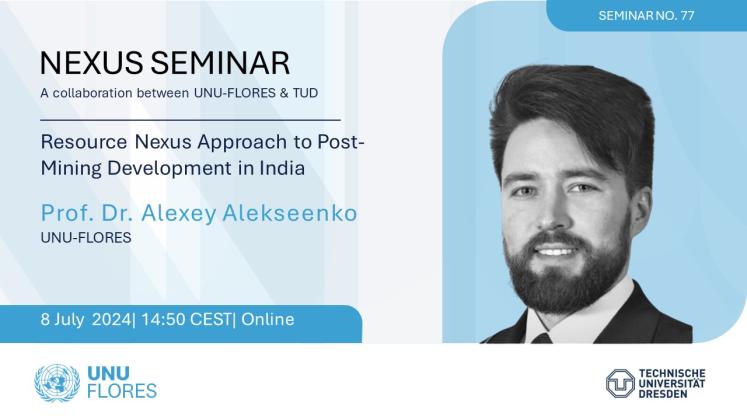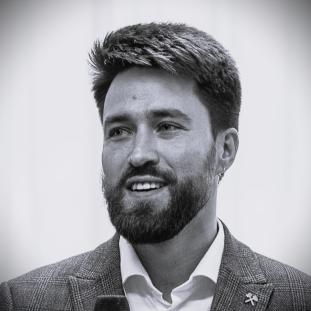In post-mining areas, the Global North emphasizes the importance of ecosystem services and land revitalization. For the Global South, and India in particular, energy generation and industrial site development driven by local communities can be as important as environmental concerns. As a result, land-use decisions in these areas need to be tailored to the specific demands for materials and resources. While plenty of guidelines exist for recreating a biome, the critical concern is how to meet the needs after mine closure without degrading the overall resource base. The Resource Nexus approach does not aim solely to transform minescapes into “green” or “blue” areas. Conversely, the management plan is considered favorable if it can convert wastelands into energy facilities, transport hubs, warehousing spaces, and other productive uses. This approach ensures the conservation of land resources by favoring the development of brownfields over greenfields.
About the Speaker: Prof. Dr. Alexey Alekseenko, UNU-FLORES
Prof. Dr. Alexey Alekseenko led and was engaged in environmental projects for industries extracting coal, metals, diamonds, and building materials. His expertise expands from pollution assessment to the restoration of ecosystems, advancing the Resource Nexus approach in achieving the Sustainable Development Goals. Alexey currently studies post-mining legacies and opportunities in the broader context of global coal phase-out and energy transition.
Background of the Series:
UNU-FLORES, in collaboration with PRISMA – Centre for Sustainability Assessment and Policy on behalf of TU Dresden, is excited to announce the Nexus Seminar Series. The joint seminar series, which launched in 2015, features lectures by senior scholars and successful practitioners that highlight all dimensions of research on the Nexus Approach, ranging from hands-on implementation strategies to theoretical debates. The Nexus Seminars serve not only as a platform for scientific exchange and cooperation between UNU-FLORES and TU Dresden but also as a medium for the partner institutions to discuss their research with a broader audience. The Nexus Seminar, which takes place monthly during the academic semester, is open to the public and delivered virtually through online webinars.





